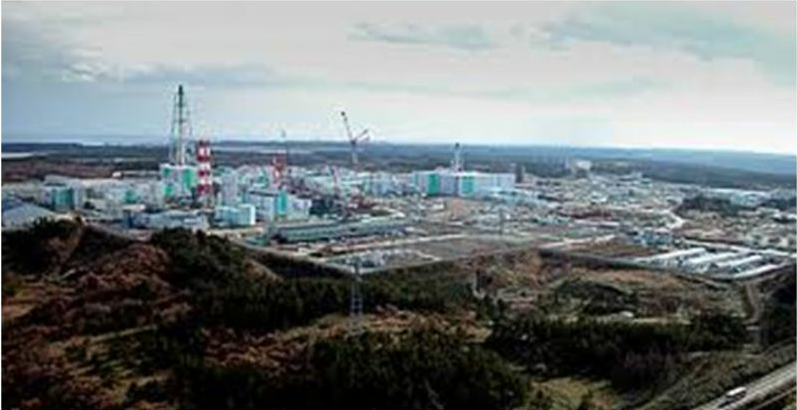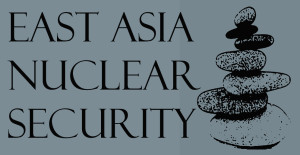Daily Report Archives
Established in December 1993, the Nautilus Institute’s *N*ortheast *A*sia *P*eace and *S*ecurity *N*etwork (NAPSNet) Daily Report served thousands of readers in more than forty countries, including policy makers, diplomats, aid organizations, scholars, donors, activists, students, and journalists.
The NAPSNet Daily Report aimed to serve a community of practitioners engaged in solving the complex security and sustainability issues in the region, especially those posed by the DPRK’s nuclear weapons program and the threat of nuclear war in the region. It was distributed by email rom 1993-1997, and went on-line in December 1997, which is when the archive on this site begins. The format at that time can be seen here.
However, for multiple reasons—the rise of instantaneous news services, the evolution of the North Korea and nuclear issues, the increasing demand for specialized and synthetic analysis of these and related issues, and the decline in donor support for NAPSNet—the Institute stopped producing the Daily Report news summary service as of December 17, 2010.
Nautilus Peace and Security Weekly Report—Contributor’s blog entry for Deterrence.
On May 30, 2012, the DPRK official website “My Country” issued a revised North Korean constitution. (Intriguingly, the text appeared only in Korean)…
Go to the article

Piers Williamson offers this summary of the lectures given May 31st, 2012 by Professors Frank von Hippel (Princeton University) and Gordon MacKerron (University of Sussex) on the problems associated with reprocessing nuclear spent fuel. Williamson states that two things were made clear at the event: first, spent fuel reprocessing originates from the production of weapons materials and the initial move nations made towards reprocessing was spurred by wishes to gain nuclear weapons capabilities. Although Japan does not possess nuclear weapons, its large plutonium ‘stockpile’, combined with its advanced technological base, means that it could establish a nuclear weapons program very easily. Second, there has been a global move away from using plutonium for nuclear fuel and also from civilian reprocessing (plutonium separation). Japan’s persistence in reprocessing thus bucks an international trend. Arguments that it is impossible to stop appear flimsy when the global experience and the UK case are taken into account…Put simply, reprocessing is defunct and should be buried with the waste it cannot handle.
Piers Williamson is a research assistant to Professor Andrew DeWit at Rikkyo University.
Go to the article
Nautilus Peace and Security Weekly Report—Contributor’s blog entry for Energy Security.
Frank von Hippel says of the Japanese continuing production of plutonium – in addition to the 35 tons stored around the world – for possible use in a “next-generation” fuel in power reactors, “It’s crazy…There is absolutely no reason to do that.” Perhaps not…
Go to the article

In the following report Michael Hamel-Green reviews the historical and institutional precedents supporting recent proposals to establish a nuclear weapons free zone both on the Korean Peninsula and in the wider Northeast Asian region. “Despite the fact that the Northeast Asia…has not yet progressed to government-to-government negotiations on a regional nuclear free zone concept, or even agreement in principle on such a concept…the negotiation history and background of the six currently established [Nuclear Weapons Free] zones suggest that there is often a quite lengthy pre-negotiation phase in which civil society campaigns, Track 2 negotiations and proposals…and catalysing changes or crises …can serve to concentrate the minds of regional governments and the wider international community.”
Michael Hamel-Green is the Dean of and Professor in the Faculty of Arts, Education and Human Development at Victoria University, Melbourne.
This report was originally presented at the East Asia Nuclear Security workshop held on November 11, 2011 in Tokyo, Japan.
Go to the article
Nautilus Peace and Security Weekly Report—Contributor’s blog entry for Austral Peace and Security.
Washington’s Pacific pivot is essentially a matter of the Obama administration drawing a line under the distractions of the Bush-era disasters of Iraq and Afghanistan, and re-focusing strategic planning on the rise of Chinese economic, political and military power…
Go to the article

Abe Nobuyasu assess the possibility of creating an environment in Northeast Asia that could facilitate the withdrawal of U.S. extended nuclear deterrence to Japan and South Korea. Achieving such a goal mandates that several outstanding regional issues are addressed. These include: the territorial disputes over the Takeshima/Dokdo and Senkaku islands, the long-standing tensions across the Taiwan Strait, and North Korea’s continued nuclear weapons program. Were these issues to be addressed, Abe asserts that a regional security framework—such as a Nuclear Weapons Free Zone—may be possible. He warns, however, “for this Nuclear Weapons Free Zone to materialize, North Korea has to give up its nuclear program…the chances of its realization are equal to that of denuclearizing North Korea.”
Ambassador Nobuyasu Abe is currently the Director of the Center for the Promotion of Disarmament and Non-Proliferation at the Japan Institute of International Affairs. Ambassador Abe has served as Consul-General in Boston, as Ambassador to Austria and Saudi Arabia, and as a diplomat for the Japanese government, the U.N., and other international organizations in Washington, D.C., Geneva, Tel Aviv, New York, Manila, and Bern.
This report was originally presented at the East Asia Nuclear Security workshop held on November 11, 2011 in Tokyo, Japan.
Go to the article



